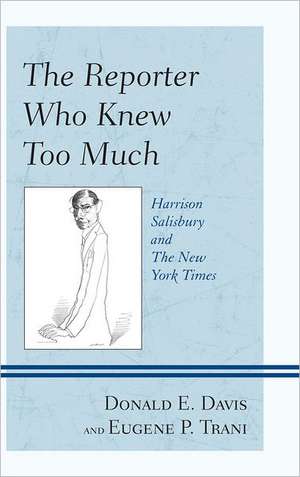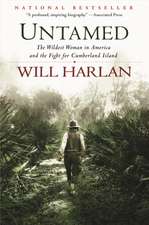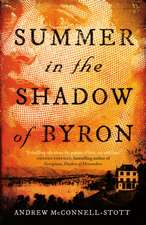The Reporter Who Knew Too Much: Harrison Salisbury and the New York Times
Autor Donald E. Davis, Eugene P. Tranien Limba Engleză Hardback – 24 oct 2012
Preț: 459.77 lei
Preț vechi: 597.10 lei
-23% Nou
Puncte Express: 690
Preț estimativ în valută:
87.98€ • 92.09$ • 73.22£
87.98€ • 92.09$ • 73.22£
Carte tipărită la comandă
Livrare economică 31 martie-14 aprilie
Preluare comenzi: 021 569.72.76
Specificații
ISBN-13: 9781442219496
ISBN-10: 1442219491
Pagini: 283
Dimensiuni: 162 x 231 x 24 mm
Greutate: 0.56 kg
Editura: Rowman & Littlefield Publishers, Inc.
ISBN-10: 1442219491
Pagini: 283
Dimensiuni: 162 x 231 x 24 mm
Greutate: 0.56 kg
Editura: Rowman & Littlefield Publishers, Inc.
Recenzii
Davis (emer., Illinois State Univ., Normal) and Trani (emer., Virginia Commonwealth Univ.), both historians, contribute a highly significant volume, one covering the career of one of the US's leading foreign correspondents. Harrison Salisbury (1908-93) was almost an institution at The New York Times. In a career that spanned his entire adult life, starting at age 20, he had one significant beat after another, covering, for example, Louisiana in the wake of Huey Long's assassination; London during the blitz; wartime and postwar Moscow; the American South during the civil rights struggle; North Vietnam's resistance to American bombing; and the ruthless suppression of demonstrators in Beijing's Tiananmen Square. The "great gadfly" wrote 21 books, including two novels and histories of 20th-century Russia, China, and the Wehrmacht's siege of Leningrad. This careful study, as thorough as it is readable, is grounded in the Salisbury papers at Columbia University, though the authors also rely on other manuscript collections and contemporary dispatches. Particularly revealing is the authors' account of infighting among the Times's top echelon and the politics that deprived Salisbury of a third (well deserved) Pulitzer Prize. Given the attention to Salisbury's first marriage, one wishes for some background on his second. Summing Up: Highly recommended. All readers. CHOICE Minnesotan Harrison Salisbury became one of the preeminent newspapermen of the last half of the twentieth century, covering world events for the United Press and the New York Times and editing the Times' influential op-ed page. In rigorous academic style, Davis and Trani examine Salisbury's remarkable and productive life. Salisbury had a journalist's great good fortune to land in the right place at the right time, have the full support of a news organization, know the right people, and possess superior reportorial skills. He served in Moscow at the close of the Stalin era. He covered civil-rights battles in the American South. He reported America's growing involvement in Vietnam and became an early and vocal opponent of the war. By the end of the 1980s he arrived in China in time for the Cultural Revolution and the growing student democratic movement. He also wrote an outstanding history of the Nazi siege of Leningrad. Booklist Davis and Trani have produced a lively, crisp, yet exhaustive account of a towering figure in the history of the New York Times. A man of the left, Harrison Salisbury spoke truth to power selectively, but everyone respected his talent and industry. He was a great figure in 20th century foreign reporting, whether in Moscow, Hanoi or Beijing, in his seventies no less than in his thirties. Salisbury's sharp eye and eloquent pen produced terrific stories and influential books. His life, vividly reflected in The Reporter Who Knew Too Much, was an American saga blending Minnesota idealism, Washington's leading role in the post-WWII world, and Salisbury's hard-nosed realism learned from brushing shoulders with tyrants. As well as a memorable portrait of Salisbury, here is rich detail on struggles within the Times among brilliant editors who saw themselves as priests of an infallible church. -- Ross Terrill, author of Mao, The New Chinese Empire, and Madame Mao The Reporter Who Knew Too Much is a vivid and meticulous tour through the professional and personal life of one of America's great foreign correspondents. Extensively reliant on archival sources, this biography teaches the reader not only about Harrison Salisbury himself, but also about the broader context of Russian and Chinese history, American diplomacy, and perhaps most importantly, the evolution of the American news business. Highly recommended! -- Judyth L. Twigg, Virginia Commonwealth University Harrison Salisbury [...] was well known in Russia during the Second World War, because he sent the best reports on the situation in the Eastern Front to the United Press. The unbiased and courageous reports of Salisbury captured the attention and imagination of people in many countries. This book will be very useful for [...] those who are interested in the great events of the second half of the twentieth century. -- Boris Shiriaev, St. Petersburg University, Russia The Reporter Who Knew Too Much is most compelling in its meticulous examination of Salisbury's years in the Soviet Union before and after Stalin's death, including the reportage that led to the first of two Pulitzer Prizes. Trani and Davis also fully illuminate the role Salisbury played in the gradual unmasking of U.S. involvement in Vietnam - and the price he paid in the denial of his third Pulitzer by one vote of the publisher-dominated advisory board that overruled a jury of his peers. The Richmond Times-Dispatch [The authors] have clearly done their homework in the Salisbury papers, with interviews, and in reviewing the published output of a long career. Salisbury's life was fascinating, filled with ups (such as a Pulitzer in 1955) and downs (being done in by the Johnson administration after his Hanoi reporting), as well as being in the right place at the right time (such as Tiananmen Square in June 1989) even in retirement. In all, a fascinating story. Communication Booknotes Quarterly Donald Davis and Eugene Trani undertake the difficult task of bringing to life one of the most prolific American journalists of the second half of the twentieth century...Overall, the book succeeds in driving home the authors' message that Salisbury's dedication to journalistic integrity made him one of the premier and respected journalists in the United States, if not the world. The authors further underscore this point through their analysis of Salisbury's personal heroes, who all stood, sometimes alone, for what they believed in. The Russian Review







